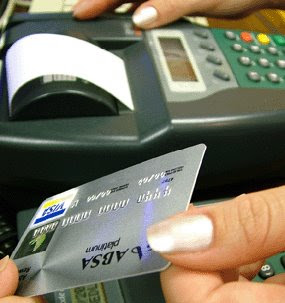 Low interest credit cards are available as alternatives to those with middle-of-the-road to very high interest rates. If you have a credit card with a high interest rate anywhere from 17% to 24% or higher, then you may not realize that it is costing you hundreds and even thousands of dollars every year in interest alone. Once you understand your credit and how it is impacting your debt situation, you will see how low interest or even 0% APR credit cards can be a much better solution.
Low interest credit cards are available as alternatives to those with middle-of-the-road to very high interest rates. If you have a credit card with a high interest rate anywhere from 17% to 24% or higher, then you may not realize that it is costing you hundreds and even thousands of dollars every year in interest alone. Once you understand your credit and how it is impacting your debt situation, you will see how low interest or even 0% APR credit cards can be a much better solution.Gather Your Statements
Collect your statements for all high and low interest credit cards. Include Visa, MasterCard, American Express, Discover, department stores, retailers, grocers and any other revolving accounts. For each bill, make a record of the total balance, minimum payment amount and interest rate. You might also want to include your estimated monthly payment (if it's more or less than the minimum) and the monthly finance charge.
Compare Cards
If you compare the numbers for each card, you will be able to see which ones are costing you the most money. The higher the APR and the higher the balance, the more you will end up paying in interest in the long run. And, if you only pay small amounts of what you owe, you can go on paying for over 20 years. Now you can see the benefit of having a low interest credit card.
Categorize Your Debt
Once you've figured out which are the low interest credit cards and which are high, you need to categorize them from highest to lowest. Then reorder them, if necessary, based on the estimated amount of interest you would pay for the entire year. In other words, if you have a high rate card with a low balance, the overall interest may be less than a low interest credit card with a very high balance. This step will help you to focus on the cards that are taking the most of your hard earned money.
Negotiate With Your Bank
Before you cut up your plastic or send it through the paper cutter, call you current credit card company. Many consumers don't realize it, but companies would rather lower your interest rate than lose your business. Tell them that you've been offered a better deal on a low interest credit card. They may just match that offer, saving you the time and effort used to close and open a new card.
Shop Around For 0% APR Credit Cards
Some banks just won't budge. You may have to do some digging to get a low interest credit card. Check online, talk to your local bank and sort through those direct mail offers. Ask your friends, family, co-workers and other acquaintances to learn about the cards they use.
Carefully Read the Fine Print
Many cards look too-good-to-be-true - 0% interest on transfers, lifetime low rate, frequent flyer miles, insurance benefits, etc. Often times, the offers are just that. 0% offers may only be applied to a limited amount or during a specific time frame. Fixed rates may increase if you so much as miss a single payment and so on. Pay close attention to all terms and policies, making sure to read the fine print. Don't accept a low interest credit card until you are sure you understand all that is involved.
Maintain Good Credit
Now you can stop throwing money down the drain. Treasure your low interest or 0% APR credit card and maintain your good credit rating. Pay more than the minimum amounts and don't get behind. Just as fast as you were able to lower your APR, it could jump up to astounding numbers.



